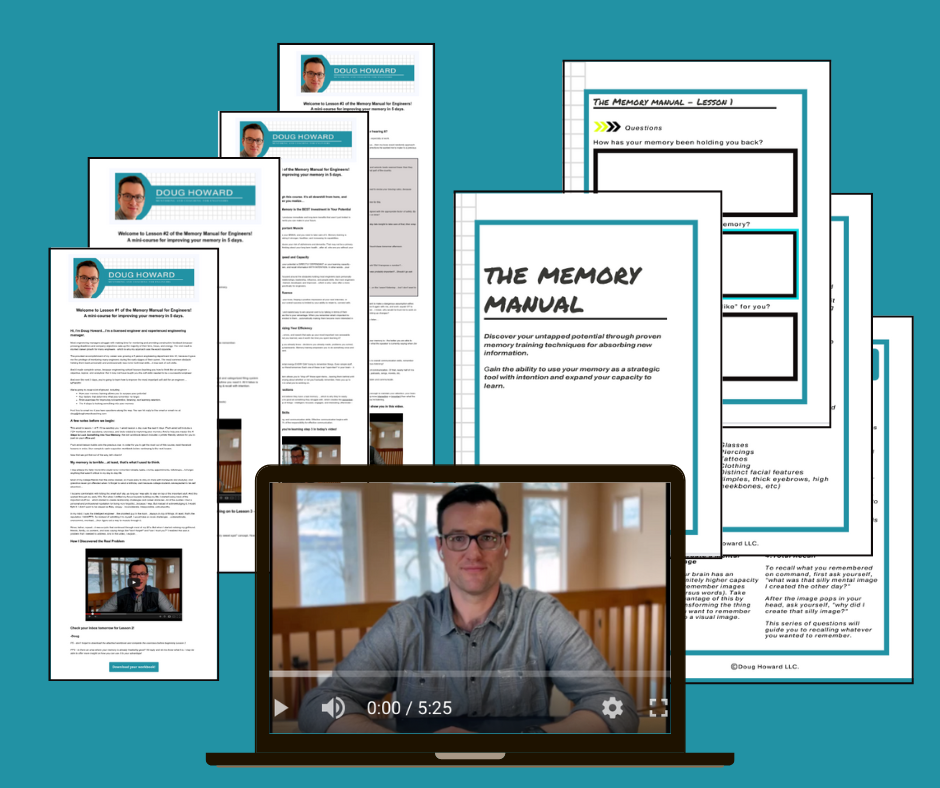How to Make Sure People Listen and Understand You | Leadership Training for Engineering Managers
As an engineering leader, you can't afford to have communication breakdowns…
but most of your direct reports are too embarrassed to admit they weren't listening to you or that they're not clear on your directions, which leaves you wondering if they're just giving you lip service in the moment.
But I'm gonna teach you a simple technique that removes the guesswork and guarantees crystal clear communication without having to micromanage.
Stay tuned.
Hey everybody, and welcome to my YouTube channel. If you're looking to increase your impact as a leader, you've come to the right place.
Perception vs Reality
Communication breakdowns and misunderstandings happen for many reasons. But there's one major overarching reason that most miscommunications stem from. To illustrate how this works, let's walk through a fun little exercise. I'm gonna read you a few quotes from a famous celebrity. As I'm doing this, pay attention to how you interpret the message in each of these quotes.
“I'm not a fighter by nature, but if I believe in something, I stand up for it.”
“Never say never.”
“I'm living proof that dreams come true, if you work hard, pray and believe.”
“I grew up below the poverty line, and I didn't have as much as other people did growing up but I think it made me a stronger person and it built my character.”
How did you interpret these quotes?
Did it invoke any feelings?
Did it feel genuine, authentic?
Maybe it was motivational or inspiring.
Or maybe you found it insightful or powerful.
Now, what if I told you that these quotes weren't from The Rock?
Let's walk through this exercise again, but this time I'm gonna show you the celebrity who actually said these quotes. Pay attention to how it changes your interpretation of each message in the quote.
“I'm not a fighter by nature, but if I believe in something, I stand up for it.”
“Never say never.”
“I'm living proof that dreams come true, if you work hard, pray and believe.”
“I grew up below the poverty line, and I didn't have as much as other people did growing up but I think it made me a stronger person and it built my character.”
How do you interpret these quotes now?
It probably went from inspiring and authentic to annoying and irritating, right? And all I did was switch the images I showed you.
The actual quotes stayed the same, yet it changed the way you interpreted the messages. There's a unique relationship between reality, interpretation, and meaning.
To understand this relationship, let's take a step back and think about what's actually happening when you receive a message. For example, let's say when you read a text message from someone, you might think you're just passively taking in information, but you're not.
Instead, think of it as a creative process.
Misinterpreting the Meaning
When you receive a message from someone, you're actively participating in the process of interpreting that message, and then you're actually creating your own meaning for it, and that meaning may be completely different from what the message sender had in mind.
For example, let's say you're on your way home from work and you're feeling thoughtful, so you decide to surprise your wife with flowers. You're excited to surprise her, and you're expecting a gracious thank you, followed by a hug and a kiss. But when you give her the flowers, she reacts aggressively and says what's wrong.
This is an example of how your intention behind a message could create an entirely different impression and meaning for the other person. In other words, no matter what you say or do, you can't control how someone interprets your message.
Now, have you ever been in a scenario like this where your intentions were misinterpreted by the other person?
Let me know in the comments.
Every person has a unique framework for how we view the world, and it's shaped by our predispositions, our expectations, our individual preferences. All of these things contribute to shaping the perceptions of our experiences and these experiences in turn actually influence the way we will interpret, view, and create meaning for future experiences.
You see how the cycle works.
Now going back to the example I just gave where you bought your wife flowers and she interpreted it like something was wrong, maybe your wife reacted that way because of how she grew up. Maybe whenever her father screwed up bad, he would butter up her mom with flowers before fessing up to what he actually did wrong.
Creating Your Own Reality
What I wanna point out is that essentially you create your own reality and it's based on what you pay attention to, but no two people pay attention to the exact same things around them. So you may hear things that weren't said, or you might subconsciously, selectively ignore things that don't make sense to you.
And all of this makes it impossible for two people to interpret things the exact same way. Their meanings of messages are an interpretation, and they're never the exact same between two different people.
Empathic Listening Technique
But here's a powerful technique you can use to make sure you're always on the same page with the other person. It's called empathic listening, and here's how it works
After the first person delivers the message. The second person repeats the message back to the first person. If both people are on the same page, the exercise is over and you move on.
However, if there was a disconnect between the two people's messages, then the exercise continues with the first person correcting the second person's message. Followed by the second person, repeating the corrected message back to the first person. You continue this cycle as many times as it takes to get on the same page.
Here's a quick example for how this works. Let's say you give these instructions to a direct report.
I want you to review the connection design, then cross reference your work with the design calcs you did on Project X, Y, Z. Then I want you to have a PE give your calcs a final review before you give the material takeoffs to the manufacturer.
After you deliver these instructions, ask the other person to recite your instructions back to you. You can do it like this.
Hey, before we break off, I wanna make sure we're on the same page and I wanna make sure that we didn't miss anything. Would you mind explaining these instructions back to me from here?
If you're both on the same page, great, move on. If they misinterpreted what you said, repeat the empathic listening cycle to clarify it with them. In some cases, listening to them may help you realize that you missed the key instruction or that you want to add more instructions for them. When this happens, just own it and say,
Hey, I'm glad I asked you to do that because I realized that I forgot to include some of these instructions for you.
Using This as The Listener
This technique is a great way to influence other people, and if you wanna learn how to take your influence skills to the next level, check out my episode called Influence Anybody To Do Anything In Five Steps.
Now, by the way, this empathic listening technique is even more powerful when you're the person who's on the listening end of the conversation. For example, when your boss gives you instructions, you can voluntarily recite their instructions back to them,
Hey, I just wanna make sure we're on the same page. You want me to do X, Y, and Z, right?
You can also use this technique to disarm emotional situations and conflicts with other people. Here's another example. Let's say one of your direct reports comes into your office complaining about a work issue. Before diving in with the solution, use empathic listening to make the other person feel heard, understood, and appreciated.
Because at the end of the day, that's what most people want in these situations.
After they finished complaining to you, respond with something like,
Thank you for sharing this with me. I really appreciate you bringing this to my attention. Before we figure out how to solve this, I just wanna make sure I'm understanding you correctly. You're saying that when X, Y, Z happens to you, it gets you stuck and you don't have enough information to do your job. Is that right?
This gives the other person the chance to confirm you heard them correctly, or to clarify what the real problem is for them. For example, they might say,
Well, that's part of the issue, but the real problem is that I feel like I keep dealing with the same issues over and over again, and I'm not growing in my role.
Now, if this were to happen, you could reply with something like this.
Oh, now I understand you want to grow in areas X, Y, and Z, but you feel like you're not getting the chance to grow because you're stuck dealing with these reoccurring issues that you have no control over. Am I getting that right?
Keep going through this cycle until you're both on the same page because you can't help solve their problem or give them direction when you're not even clear on what the actual issue is.
Empathic listening is a great technique for making sure your communication was crystal clear and understood. And it also helps you with building relationships and disarming other people's emotions, but it requires patience on your part. And if that's something you struggle with, you should check out my episode called Three Ways for Engineers to Improve Your Patience.



